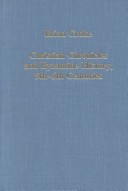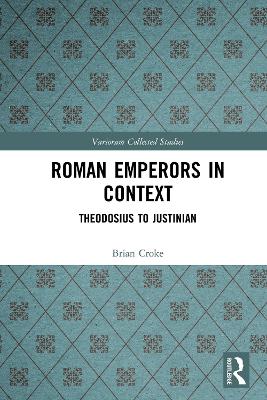Variorum Collected Studies
2 total works
CS 386
Christian Chronicles of Byzantine History, 5th-6th Centuries
by Brian Croke
Roman Emperors in Context: Theodosius to Justinian brings together ten articles by renowned historian Brian Croke.
Written separately and over a period of fifteen years, the revised and updated chapters in this volume provide a coherent and substantial story of the change and development in imperial government at the eastern capital of Constantinople between the reigns of Theodosius I (379-95) and Justinian (527-65). Bookended by chapters on the city itself, this book is based on a conviction that the legal and administrative decisions of emperors have an impact on the whole of the political realm. The fifth century, which forms the core of this book, is shown to be essentially Roman in that the significance of aristocracy and dynasty still formed the basic framework for political advancement and the conduct/conflict of political power around a Roman imperial court from one generation to the next. Also highlighted is how power at court was mediated through military generals, including major regional commanders in the Balkans and the East, bishops and bureaucrats. Finally, the book demonstrates how the prolonged absence of male heirs during this period allowed the sisters, daughters, mothers and wives of Roman emperors to become more important and more central to imperial government.
This book is essential reading for scholars and students of Roman and Byzantine history, as well as those interested in political and legal history. (CS1100)

